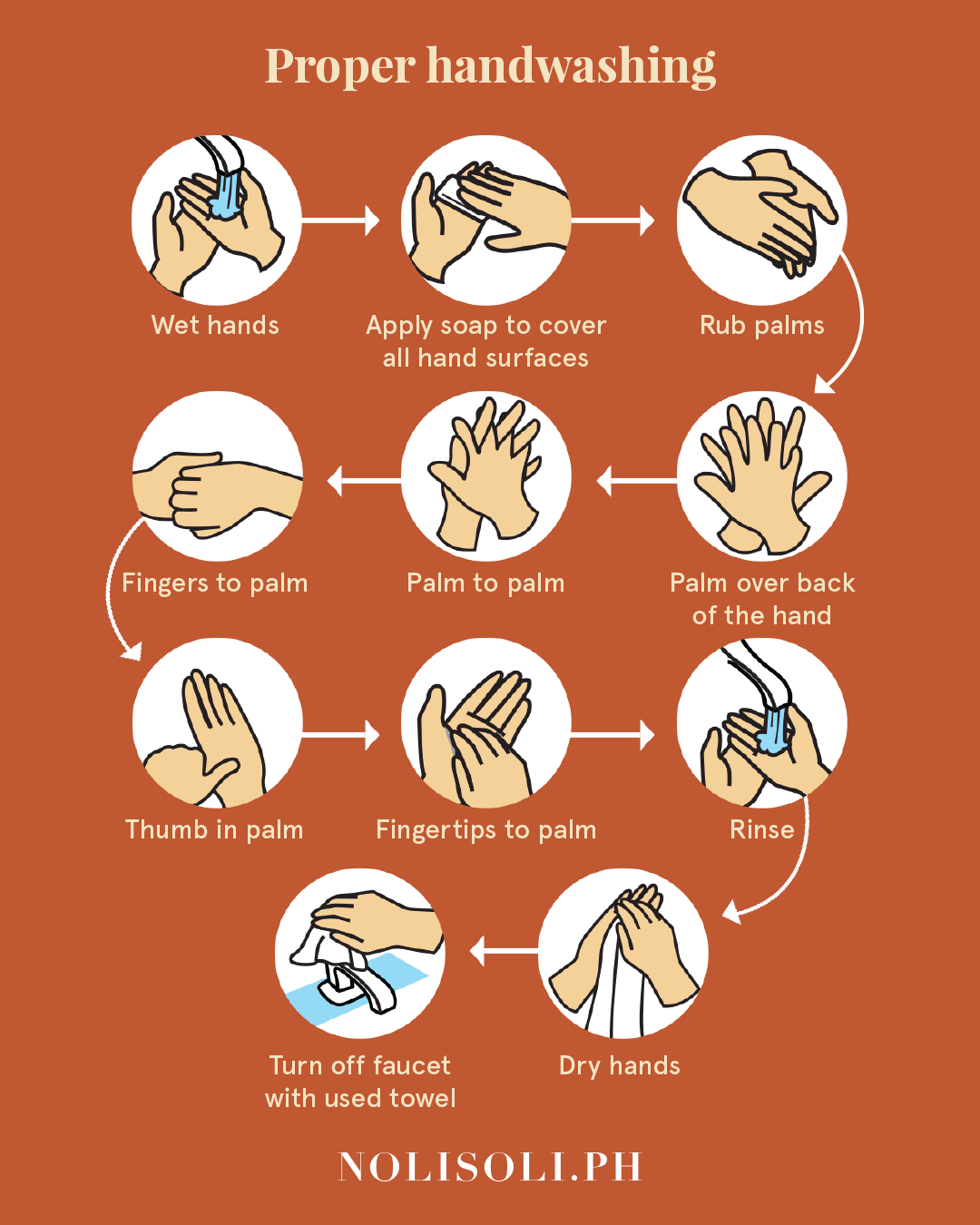Common questions about COVID-19
1. What is COVID-19?
It is an infectious disease caused by the coronavirus, which was unknown before the outbreak in Wuhan, China in December 2019.
2. What are the symptoms of COVID-19?
- Fever
- Fatigue
- Dry cough
- Difficulty breathing
Seek medical attention promptly and call in advance if you have these symptoms.
Some patients may have:
- Aches and pains
- Nasal congestion
- Runny nose
- Sore throat
- Diarrhea
These symptoms are usually mild and begin gradually. Some people get infected but don’t develop any symptoms nor feel unwell.
3. How does COVID-19 spread?
- Through small droplets from the nose or mouth
- By touching infected surfaces then touching the eyes, nose or mouth afterward
4. Who is at risk for developing severe illness?
- Older persons
- Persons with pre-existing medical conditions (such as high blood pressure, heart disease, lung disease, cancer or diabetes)
Even young and healthy persons should practice proper hygiene and protect themselves.
5. Are there any medicines effective against COVID-19?
- There is no evidence that current medicine can prevent or cure the disease. Self-medication is not recommended.
- Antibiotics do not work against viruses, only on bacterial infections.
6. Is there a vaccine, drug or treatment for COVID-19?
Not yet. In the meantime, people with serious illness should be hospitalized. Most patients recover thanks to supportive care.
Misconceptions about COVID-19
1. Eating garlic and bananas can cure COVID-19. Gargling salt water and drinking liquor are also effective measures.
→ False. According to WHO and DOH, there is no evidence that any of these can cure the virus and there is still no existing vaccine or cure for COVID-19.
2. Hand dryers at UV lamps are effective for killing the virus.
→ False. UV radiation may even be harmful and cause skin irritation. The best way to protect yourself from catching the virus is by maintaining proper hand hygiene.
3. Take a hot bath to prevent yourself from catching the virus.
→ False. Your body temperature remains around 36.5°C to 37°C no matter the temperature of your bath water. Too much heat in bath water may also be harmful and can burn you.
4. Spraying rubbing alcohol or chlorine on your body or using nasal spray will kill the virus in your body.
→ False. Spraying your body with these chemicals won’t cure you if the virus has already entered your body. Chlorine may even be harmful to your eyes and mouth. Use rubbing alcohol on your hands only.
5. Two Chinese spies shipped samples of the coronavirus from a Canadian research facility to Wuhan.
→ False. There are no “Chinese spies,” and experts are still conducting studies on the virus to develop a possible cure or vaccine for it.
6. Eating bat soup was the cause of coronavirus.
→ False. The viral video of a woman eating bat soup was taken in 2016 from the archipelago of Palau, not Wuhan. There is no evidence linking eating habits to the spread of coronavirus.
7. The virus won’t last in the Philippines because of the warm climate.
→ Unconfirmed. There is no evidence from WHO about this. Follow the existing guidelines from WHO and DOH, and stay safe.
[READ: Fact or fiction: Debunking misconceptions amid the coronavirus outbreak]
Sanitizing your home
Cleaning: removing visible contamination. Though germs are not completely removed, it helps prevent infection.
- Clean tables, doorknobs, light switches, handles, desks, toilets, faucets and sinks.
- Clean surfaces with detergent or soap and water before disinfecting.
- For carpets and rugs, remove visible contamination and use appropriate cleaners.
Disinfecting: using appropriate chemicals to remove contamination after cleaning
- For disinfection, use diluted household bleach and alcohol solutions with at least 70 percent alcohol.
[READ: How to virus-proof every room in your house]
Proper handwashing

- Wet hands
- Lather soap on hands
- Rub palms together
- Palm over the back of the hand
- Palm to palm, with fingers intertwined
- Fingers interlocked
- Thumb in palm
- Fingertips to palm
- Rinse thoroughly
- Dry hands with tissue paper
- Turn off faucet with used tissue paper
Do not forget to:
- Wash between your fingers and under your nails
- Repeat each step on the other hand
Additional key times to clean hands include:
- After blowing one’s nose, coughing, or sneezing
- After using the restroom
- Before eating or preparing food
- After contact with animals
- Before and after providing care for someone in need of assistance (e.g. a child)
Proper use of masks
Wearing a mask helps prevent the spread of the virus as it catches the droplets from coughing or sneezing.
→ Only wear a mask if you have COVID-19 symptoms or are looking after a patient with COVID-19.
Precautionary measures to observe
- Regularly clean hands with rubbing alcohol or wash with soap and water.
- Avoid traveling and stay home if you feel unwell.
- Avoid touching your eyes, nose and mouth.
- Cover mouth and nose with bent elbow or tissue when you cough or sneeze. Dispose of used tissue immediately.
- Avoid hoarding supplies and unnecessary panic-buying.
- Keep up to date on the latest COVID-19 hotspots (local areas where COVID-19 is spreading widely).
24/7 COVID-19 HOTLINE: 02-894-COVID (02-894-26843)
For Smart, Sun, TNT and PLDT subscribers: 1555
Get more stories like this by subscribing to our weekly newsletter here.
Read more:
Debunking COVID-19 myths, part 2
Think you’re a close contact of a COVID-19 patient? Here’s what to do next
Your phone can carry coronavirus for 9 days. Here’s how to disinfect it